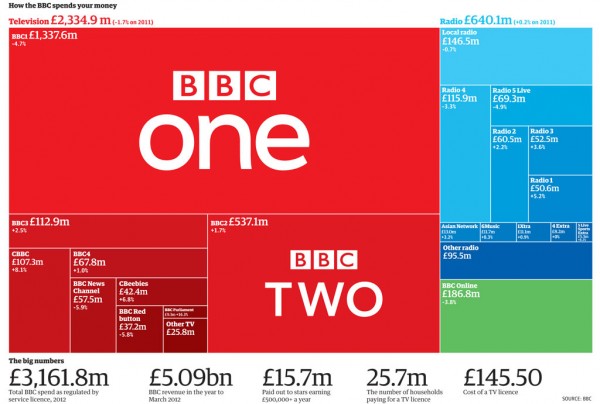It’s no secret that the BBC has to make cutbacks. Rather unpopularly, BBC Three is moving to online only, they are scaling back investment in peak-time entertainment programmes and executive pay is coming under intense scrutiny.
But how can the BBC continue to provide value for money to the taxpayer whilst still retaining its value and quality as a broadcaster? One of the solutions that isn’t being considered by MPs, but should be, is to ‘unbundle’ the BBC’s services, meaning that users are billed only for what they want to watch and/or listen to. By doing so, the BBC will be spared the difficult decisions of closing certain services but keeping others. Instead the market will do it for them.
It is true that a streamlined BBC would spell the end of less mainstream services such as BBC Four or the BBC Asian Network. But this would allow commercial and online broadcasters to compete amongst each other for a valuable niche market share, potentially resulting in greater choice and quality for viewers and listeners.
As media consumption habits continue to morph and evolve, the BBC must face up to the challenge laid down by the likes of Virgin Media, Netflix and YouTube to offer quality ‘pay-as-you-watch’ content on demand whilst increasing efficient spending of public funds.
As markets change, so must the corporations that serve them. Not paying the License Fee shouldn’t be a crime, but dissipation of public money is.
Leon Emirali is a Senior Account Executive at PLMR. In a previous role, Leon advised WASU, China’s largest pay-per-view commercial TV channel.

BBC spending graphic Illustration: Paul Scruton for the Guardian (July 2012)





